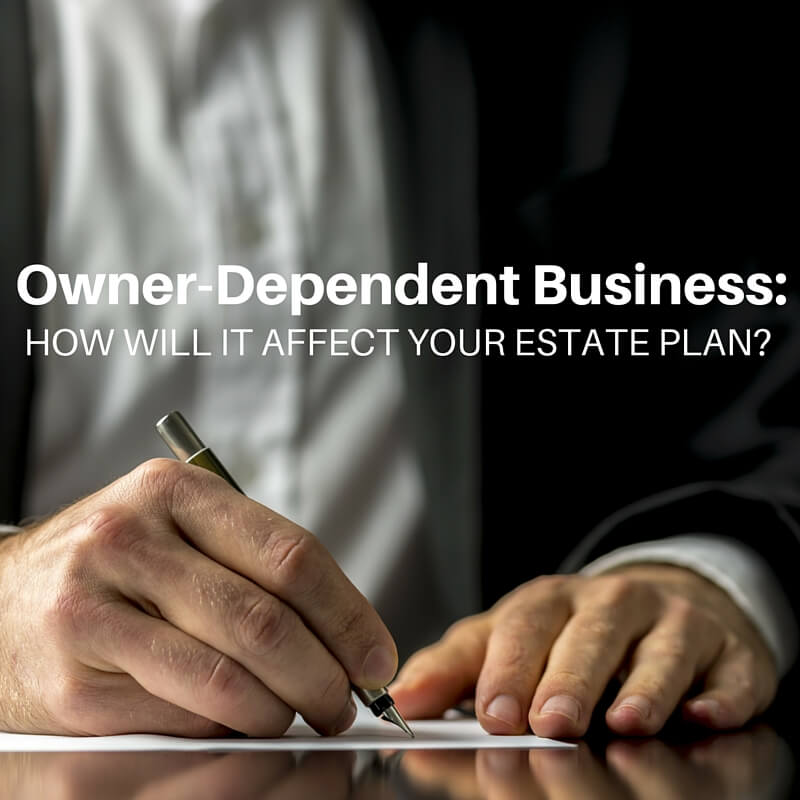This article has been excerpted from the book Estate Planning, Wills and Trusts: for Business Owners and Entrepreneurs. Author W. Rod Stern discusses how it’s never too early to start planning for what will happen to your business when you’re gone.
[x_blockquote cite=”W. Rod Stern” type=”left”]As a business owner, it’s quite likely that a significant portion of your wealth–and your family’s source of income after your death–is tied up in the family business.[/x_blockquote]
Your estate plan, no matter how complex, can be implemented any time before you die, as long as you are still legally competent. It’s probably a good idea to begin planning sooner rather than later, since you may not receive advance warning of your impending death.
If you own a business or a professional practice, it is even more important that your estate planning begin today. As a business owner, it’s quite likely that a significant portion of your wealth–and your family’s source of income after your death–is tied up in the family business. The success of your estate plan is dependent upon the business being transitioned to the next generation or sold to someone outside the family for a fair price. Either result takes years of planning and preparation, sometimes as much as 10 years.
The first step toward developing a successful ownership transition plan is gaining an understanding of your business management philosophy. You likely fall into one of three broad categories: owner dependent, multigenerational or marketable.
Many businesses are started and run by one strong individual and then close when the founder retires or dies. For those owner-dependent businesses, the guiding philosophy is to generate the best income possible each year and allow the founder to take out the profits as current income and retirement savings. There is no expectation that the business will continue past the founder’s involvement.
Therefore, less money is reinvested in the business each year and no effort is made to develop a strong management team to continue after the founder leaves.
Often doctors, dentists, architects, lawyers, accountants and other service providers choose to operate their businesses under the owner-dependent model, as do many general contractors, local restaurant owners and countless other businesses. The decision to be an owner-dependent business should be a conscious choice, not an accident. With proper planning and an investment of time and energy, most businesses can become multigenerational. As the owner of a small business, you should investigate all options and choose the model that best fits your personality, business plan and estate planning goals.
If your business is operating under the owner-dependent model, you are likely to have centralized control, with all decisions requiring your direct involvement. All elements necessary to make the business succeed–for example, marketing, professional services, operations, etc.–are in the sole control of the owner. All other employees, if any, are essentially clerical support.
The owner-dependent business can be highly profitable during its existence since little is spent on payroll, training or other infrastructure. The fact that the business will literally die with its owner is offset by the potential for increased profitability while the business is in operation.
The fact that the business will end when the owner retires or dies does not mean the business can be ignored for estate planning purposes. During the years the business is in existence, steps must be taken to minimize the risk of liability arising from the business activity. This will likely be accomplished through a combination of careful attention to quality, adequate liability insurance, well-drafted contracts dealing with issues of liability and indemnification, and possibly the formation of a corporate entity or limited liability company to shield the owner from personal liability.
Upon termination of the business, the owner–or his surviving family–should look into the cost of continuing liability insurance for a reasonable period of time. If the termination of the business results from the death of the owner, the family should consider appropriate procedures to limited liability by reducing, to the extent possible, the applicable statute of limitations (the period during which clients or customers can sue for alleged harm caused by the business). An estate planning or trust administration attorney should be consulted regarding formal trust administration or probate procedures to achieve this goal.
Finally, while the business is in existence, steps should be taken to document the intent to terminate the business upon the owner’s death or retirement. Although the business may, in fact, become worthless upon the owner’s death, estate tax may theoretically be imposed on the value of the business on the day before the owner died. If the owner’s death is unexpected–for example, due to a sudden heart attack–the business may be thriving immediately prior to the owner’s death. To minimize the risk of the surviving family members owing estate tax on a business that no longer exists, you should document the business plan and the business’ characteristics that act to limit transferability of the business. Your ability to prove the limited value of the business is crucial to avoiding estate tax on a business that no longer exists.
Note: Gain more valuable financial planning advice for business owners in my blog 3 Essential Moves For Business Owners Before Retirement.
Source: Estate Planning For An Owner-Dependent Business – Entrepreneur.com







